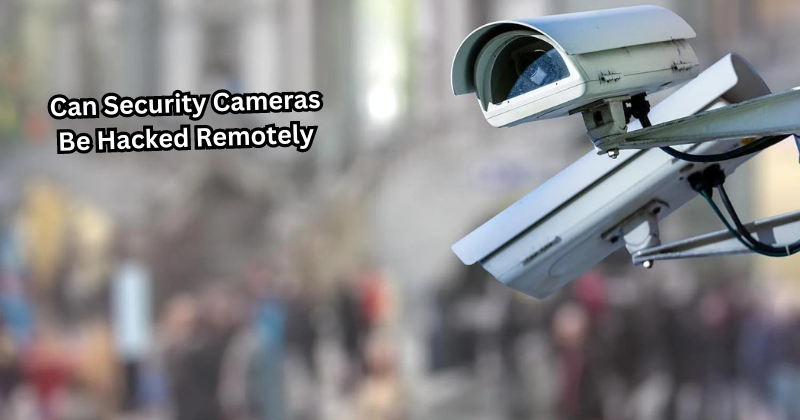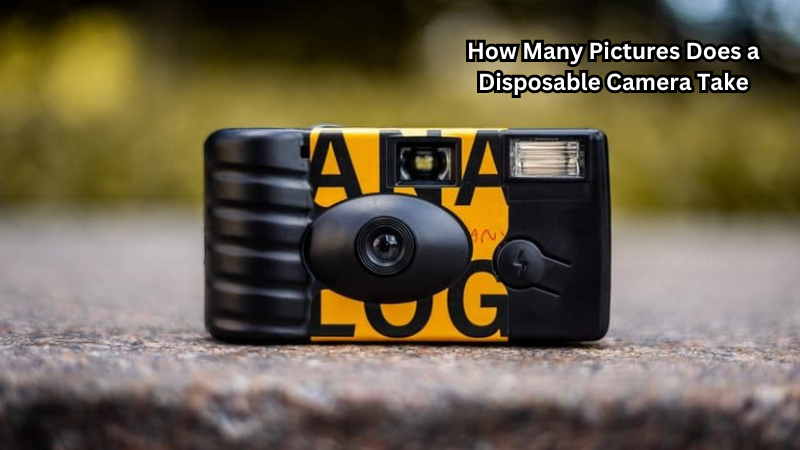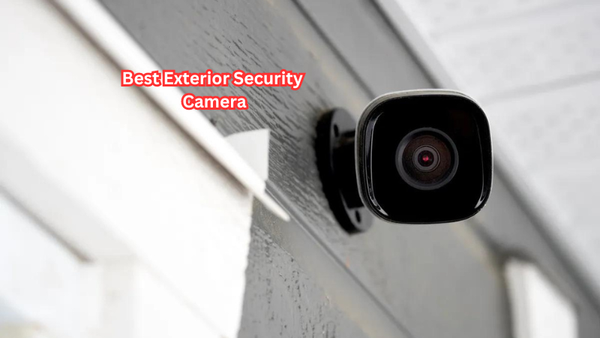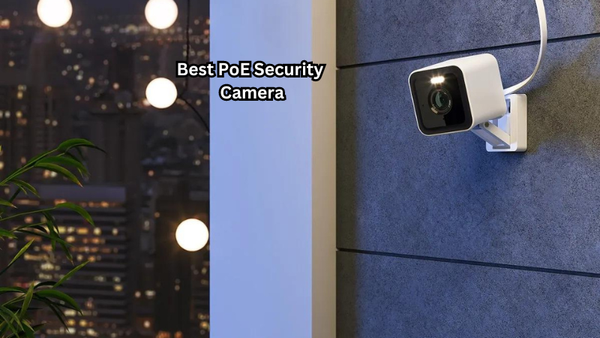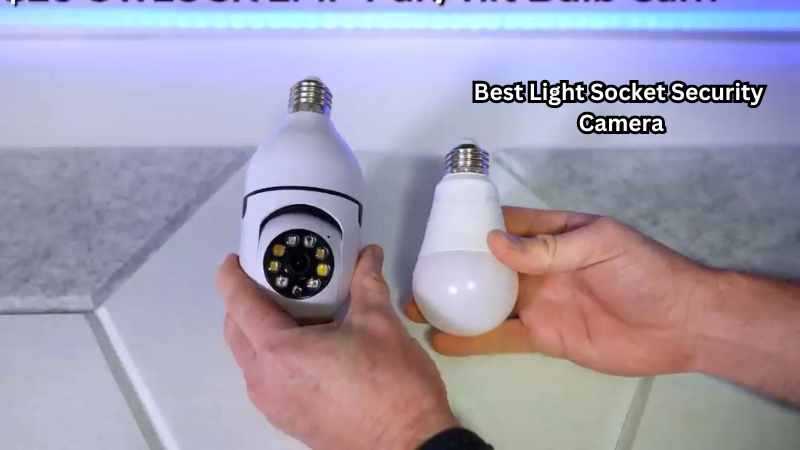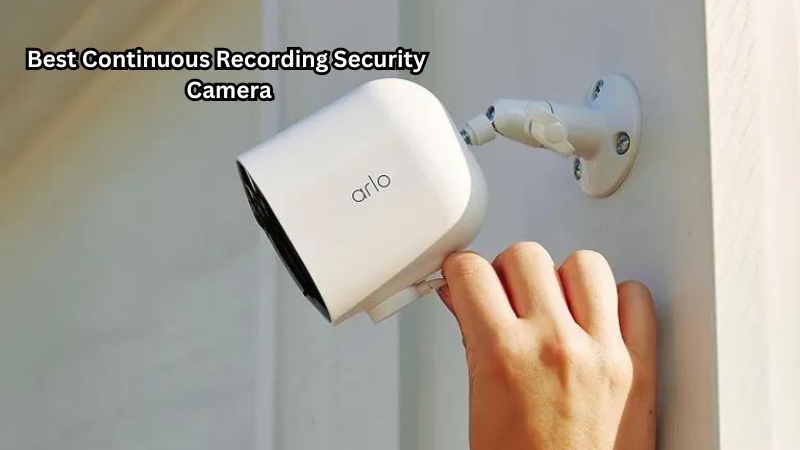Security cameras have become ubiquitous in modern society, being used for surveillance and monitoring purposes in various settings such as homes, businesses, and public spaces. While these devices are meant to enhance security and provide peace of mind, they can also be vulnerable to hacking attempts.
In recent years, there have been several high-profile incidents where security cameras were hacked remotely, causing widespread concern among the general public. This has raised questions about the safety and privacy implications of using these devices.
In this article, we will delve into the topic of whether security cameras can be hacked remotely and explore the potential risks associated with such attacks. We will also discuss ways to protect against these threats and ensure the safety of our personal and professional spaces.
What is Remote Hacking?
Remote hacking refers to the unauthorized access and control of electronic devices, such as security cameras, from a remote location through the internet or other networks. This means that an individual can gain access to a camera's feed, disable its functions, or manipulate it in any way without being physically present near the device.
For instance, a hacker could remotely take control of a security camera and use its audio capabilities to eavesdrop on private conversations or even threaten individuals given the camera. They could also use the camera's footage for malicious purposes such as blackmailing or stealing personal information.
Plus, with the rise of internet-connected cameras and the Internet of Things (IoT), remote hacking has become a more significant concern. These devices are equipped with internet connectivity, making them vulnerable to external threats if not properly secured.
How Can Security Cameras Be Hacked Remotely?
There are various ways that security cameras can be hacked remotely, and hackers are constantly finding new methods to exploit vulnerabilities. One common technique is through brute force attacks, where the hacker tries different combinations of usernames and passwords until they gain access to the camera's control panel.
Another way is through exploiting unpatched software vulnerabilities in the camera's system. This allows hackers to bypass security measures and gain remote access to the device.
Additionally, phishing scams targeting users of security cameras have also been on the rise. These scams involve tricking individuals into providing their login credentials or downloading malicious software, which can then be used to gain access to the camera remotely.
How Can You Protect Against Remote Hacking?
To protect against remote hacking of security cameras, it is essential to take preventive measures. First and foremost, make sure to change the default login credentials for your cameras regularly. This will prevent hackers from using default usernames and passwords to gain access.
Additionally, ensure that your cameras are equipped with the latest software updates and security patches. Regularly check for updates and install them as soon as they become available.
Using strong, unique passwords for your camera's login credentials is also crucial. Avoid using common words or easily guessable combinations and opt for a combination of letters, numbers, and special characters.
Lastly, it is advisable to invest in high-quality security cameras from reputable brands that prioritize security measures. These devices are often equipped with advanced encryption methods and other security features that make them less vulnerable to hacking attempts.
Does Remote Hacking Make Security Cameras a Risky Choice?
Despite the risks of remote hacking, security cameras can still be an effective tool for enhancing security and monitoring purposes. By taking precautionary measures and investing in reliable devices, you can significantly reduce the chances of falling victim to remote hacking.
It is also important to note that not all security cameras are created equal, and some may be more vulnerable to hacking attempts than others. It is essential to do thorough research before purchasing a camera and opt for one with strong security measures in place.
Furthermore, it is vital to regularly monitor your cameras' activity and be aware of any suspicious behavior. This can help detect and prevent hacking attempts before they cause significant harm. Plus, with the advancement of technology and security measures, it is becoming increasingly difficult for hackers to successfully hack into these devices.
Is There a Way to Ensure Complete Security for Security Cameras?
While it may not be possible to guarantee complete security for security cameras, some steps can be taken to significantly reduce the risk of remote hacking. Apart from implementing the preventive measures mentioned earlier, regular maintenance and monitoring of these devices are crucial.
This includes regularly checking for updates, monitoring network activity, and being vigilant against suspicious behavior. Additionally, investing in a reliable and robust firewall can also add an extra layer of protection against external threats.
Moreover, it is essential to educate yourself on cybersecurity best practices and stay updated on any new threats or vulnerabilities. By being proactive and taking necessary precautions, you can ensure the safety and privacy of your personal and professional spaces enhanced by security cameras.
Tips for Enhancing Security of Your Personal and Professional Spaces
Aside from investing in secure security cameras, other precautions can be taken to enhance the overall security of your personal and professional spaces. This includes:
- Using strong and unique passwords: This applies not only to your security cameras but also to all of your electronic devices and online accounts. Avoid using the same password for multiple accounts and regularly change them. Plus, consider using a password manager to generate and store complex passwords.
- Securing your network: Make sure to secure your home or office Wi-Fi network with a strong password and enable WPA2 encryption. This will prevent unauthorized access to your network, making it more difficult for hackers to gain control of your devices.
- Being cautious about downloads and links: Avoid downloading suspicious files or clicking on unknown links, as they could contain malware or phishing scams that can compromise your security.
- Keeping software up to date: Regularly check for updates and install them promptly for all devices and software in use. This includes not only security cameras but also computers, routers, and other devices connected to your network.
- Educating yourself and others: Stay informed about cybersecurity best practices and teach them to others. By being aware of potential risks and taking necessary precautions, you can significantly reduce the chances of falling victim to hacking attempts.
With proper measures in place, security cameras can remain a valuable tool for enhancing security rather than becoming a dangerous vulnerability.
Does the Advancement of Technology Pose a Greater Risk for Security Cameras?
As technology continues to advance, security cameras are becoming more sophisticated, with features like remote access and cloud storage. While these advancements can be beneficial, they also come with potential risks.
With remote access, it is crucial to ensure that only authorized users have access to the camera's system. This involves implementing strong passwords and staying vigilant against suspicious login attempts.
Additionally, cloud storage can also pose a risk if not properly secured. It is essential to choose reputable and trustworthy providers who prioritize security measures and regularly update their systems.
Moreover, as technology evolves, new vulnerabilities and threats may arise. It is essential to stay informed about these potential risks and take necessary precautions to protect your security cameras and overall network.
FAQs
Can security systems be hacked remotely?
Yes, security systems can be hacked remotely if they are not properly secured. This includes security camera systems, wireless security cameras, and surveillance systems. Ensuring strong security protocols and regularly updating security camera firmware can help protect against hacking attempts.
How can I protect my home security cameras from being hacked?
To protect your home security cameras from being hacked, use strong passwords, enable multi-factor authentication, and keep security camera firmware updated. Additionally, using antivirus software and following best security protocols can significantly reduce the risk of hacked security cameras.
Are wireless security cameras more vulnerable to hacking?
Wireless security cameras can be more vulnerable to hacking compared to wired systems due to their reliance on Wi-Fi. However, using strong passwords, enabling multi-factor authentication, and keeping security camera firmware updated can help secure most security cameras against unauthorized access.
What should I do if my security camera systems get hacked?
If your security camera systems get hacked, immediately disconnect them from the internet, update all passwords, and check for firmware updates. It's also important to review your security protocols and consider using antivirus software to scan your home security systems for any potential malware.
How do security protocols help prevent hacked security cameras?
Security protocols, such as strong encryption, multi-factor authentication, and regular firmware updates, help prevent hacked security cameras by adding layers of protection. These measures ensure that many security cameras, including CCTV cameras and home security systems, are more resistant to remote hacking attempts.
Conclusion
In conclusion, remote hacking may pose a risk for security cameras, but it is not inevitable. By taking necessary precautions and investing in reliable devices, you can significantly reduce the chances of falling victim to hacking attempts.
Remember to prioritize strong passwords, regular maintenance and monitoring, secure networks, and staying informed about potential risks. With these measures in place and by remaining vigilant, security cameras can continue to serve their purpose as effective tools for enhancing security in personal and professional spaces.
As technology continues to advance, it is crucial to stay updated on new threats and vulnerabilities and adapt accordingly. With proper measures in place, you can ensure the safety and privacy of your personal and professional spaces enhanced by security cameras. So, do not hesitate to invest in a secure security camera for added peace of mind.
